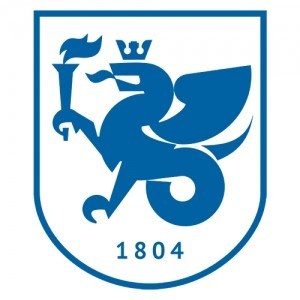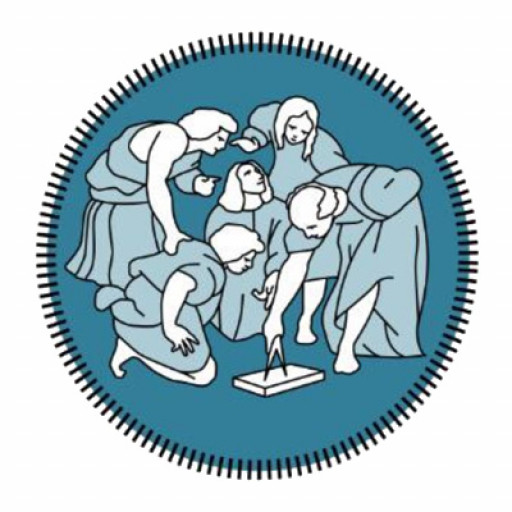Photos of university / #unifreiburg
The Bachelor's degree program in Geology at the University of Freiburg offers a comprehensive and rigorous education in the natural sciences, designed to prepare students for diverse careers in earth sciences, resource management, environmental protection, and research. This program provides students with a solid foundation in the fundamental principles of geology, including mineralogy, petrology, structural geology, sedimentology, paleontology, and geochemistry. Through a combination of theoretical coursework, practical laboratory work, and field studies, students gain a deep understanding of the processes that shape our planet, from its geological history to current dynamic phenomena.
The program emphasizes interdisciplinary learning, integrating aspects of physics, chemistry, biology, and environmental sciences to give students a well-rounded perspective on geological issues. Students are encouraged to develop strong analytical skills, critical thinking, and problem-solving abilities essential for addressing complex challenges such as natural hazards, climate change, and sustainable resource use. The curriculum includes opportunities for hands-on training with modern geological equipment and techniques, fostering practical expertise in rock and mineral identification, geological mapping, and data analysis.
In addition, students may participate in field trips to various geological sites, providing real-world context and experience that are invaluable in understanding earth processes. The program often collaborates with research institutions and industry partners, offering internships and research projects that enhance employability and professional development. Graduates of this program are equipped to pursue careers in environmental consulting, mineral and energy exploration, academic research, natural disaster risk assessment, and conservation efforts.
The University of Freiburg’s Geology program is characterized by a dedicated faculty of experts actively involved in cutting-edge research, ensuring that students are taught with the latest scientific insights. The program also promotes international exchange opportunities, enabling students to broaden their horizons and collaborate with peers worldwide. Upon completion, graduates receive a Bachelor of Science (BSc) degree, opening pathways to advanced studies in geology or related fields, as well as diverse professional roles in both the public and private sectors committed to understanding and managing the Earth’s resources and environment.
Educational organisation
The programme comprises lectures, seminars, workshops, excursions, tutorials and colloquiums. The ECTS system allows for individual choices according to the programme guidelines. The programme combines in-class learning with learning-by-doing elements.Internships
Several excursions and field work are required within the semester and during the semester break. Students are required to complete 10 days of field work.Forms of assessment
Written and oral exams in accordance with the guidelinesTo be admitted to the Master's thesis, students must be registered at least in the third semester and must have acquired at least 60 ECTS points. The Master's thesis must be written within a period of six months. It corresponds to a value of 30 ECTS points. In general, it must be submitted in English.
Course objectives
Geosciences strive to gain an understanding of the processes shaping the Earth and other planetary bodies in the solar system. Major topics are the structure and dynamics of the Earth, the materials it is made of, and research into the evolution of the planet. At the centre of attention is the Earth system as a whole, with all its subsystems. These include well-known geophenomena such as volcanoes, earthquakes, hot springs, caves, fossils, oil, minerals, geothermal energy, crystals, groundwater, etc.With this knowledge, Earth Sciences can make an important contribution towards securing energy and resources, the supply of groundwater, the re-mediation of contaminated sites and towards the development of early warning systems in the case of natural disasters.
A Master's degree in Geosciences will give students access to a wide field of work:
- geology and engineering (e.g. ground investigation, geotechnical, environmental, geothermal questions, groundwater)
- materials industry (e.g. ceramics, glass, semiconductor)
- extractive industries (e.g. non-metallic minerals, cement)
- energy economy (e.g. oil, natural gas, coal)
- agencies (e.g. geological surveys, environmental authorities)
- universities and research institutes
- monuments and museums
Language requirements
The MSc curriculum is taught in English, and therefore English language skills are essential.In order to be eligible for acceptance to the Master of Science in Geology degree programme, applicants must have English language skills which meet or exceed level B2 of the Common European Framework of Reference for Languages.
Academic requirements
(1) In order to be eligible for acceptance into the Master of Science in Geology degree programme, applicants must meet the following criteria:a) They must have earned a primary undergraduate degree at a German or foreign university with a grade point average of at least 2.7 in a Bachelor's or equivalent degree programme of at least three years' duration in earth sciences or environmental sciences, which fulfils the requirements specified in paragraph 2.
b) They must have English language skills which meet or exceed level B2 of the Common European Framework of Reference for Languages.
c) They must have earned a general higher education entrance qualification, a relevant subject-restricted higher education entrance qualification, or an equivalent qualification for access to higher education from another country.
(2) Each applicant must demonstrate that in the university studies leading to his or her primary degree (Paragraph 1a), they passed courses equivalent to at least 40 ECTS credits in the fields of mathematics, physics, chemistry, and earth sciences. The Selection Committee will rule on whether to accept work that is similar to the work required as provided in Paragraph 1a.
Enrolment fees
Approx. 150 EUR per semester, incl. the student union's and university's administrative fees. A semester ticket can be purchased separately for approx. 90 EUR per semester. It covers public transport in Freiburg and the surrounding area.Costs of living
Participants must make sure in good time that sufficient funds are available to finance their participation in a course of study. The average cost of living in Freiburg for one month is currently approx. 800-900 EUR. Some details:- Student accommodation costs approx. 280-450 EUR (monthly).
- Private expenses amount to around 350 EUR (monthly).
- Health insurance is available for approx. 45-90 EUR (monthly).
- Transport: A special student fare for regional transport costs approx. 89 EUR (per semester).
Job opportunities
A limited number of jobs are available at the institute for student assistants.Arrival support
The links below will help you find your way around:Guide for Internationals:
http://www.studium.uni-freiburg.de/studieninteressierte-en/guide_for_internationals-en/guide_for_internationals-en?set_language=en
Student life:
http://www.studium.uni-freiburg.de/studium-en/rund_ums_studium-en/rund_ums_studium-en?set_language=en
Services and support for international students
In addition to services and support offered by each coordinator of a course of study, the International Office organises a special four-day orientation session, which generally takes place two weeks before the beginning of the semester. This orientation session includes information about various aspects of everyday life (e.g. accommodation, work opportunities, etc.), presentations and visits to important institutions (e.g. the university library), and opportunities for socialising with other international students.http://www.studium.uni-freiburg.de/studium-en/studienanfaenger-en/orientation-en/orientation-en.html?set_language=en
During the semester, the "International Club", coordinated by the Studentenwerk (students' social services), offers a great variety of events, trips, and services for international students in cooperation with the International Office. Furthermore, the UNIKOS team, a group of international students who have been studying at the University of Freiburg for some time, give practical advice and can be approached for help in several languages.










